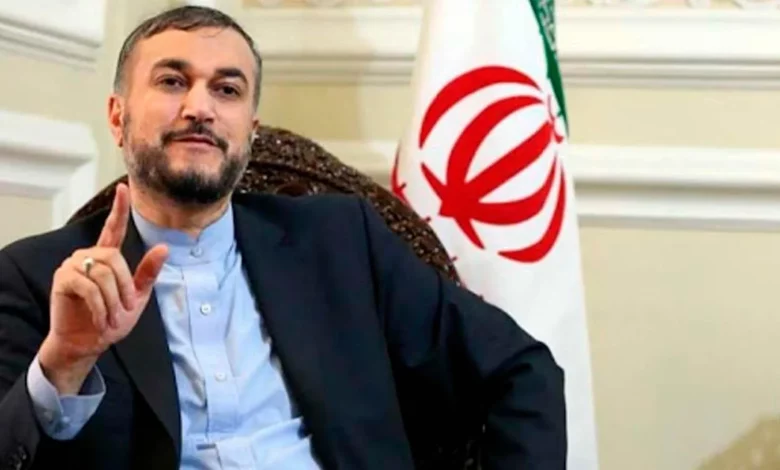Iran ready to achieve ‘good agreement’ in Vienna sanctions removal talks: FM Amir-Abdollahian
Iranian Foreign Minister Hossein Amir-Abdollahian says Tehran is prepared to reach a “good agreement” during the sanctions removal talks with the other parties to the 2015 nuclear deal, which are slated to start in the Austrian capital of Vienna at the end of this month.

In a post on his Twitter account on Wednesday, Amir-Abdollahian added that Iran’s chief nuclear negotiator Ali Baqeri-Kani was “engaged in successful talks in Europe.”
The top diplomat said it was an “important and leading principle” for all parties to return to their commitments.
Recently, Baqeri-Kani has traveled to France and Germany. In Paris, he held a meeting with Philippe Errera, director general for political and security affairs at France’s Foreign Ministry.
Iran’s Embassy in Britain announced via Twitter that Baqeri-Kani arrived in London on an official visit on Thursday morning, and that he was scheduled to meet his British counterpart and other officials in foreign office.
The sides are expected to discuss mutual and regional issues and hold consultations on the Vienna talks, the Islamic Republic News Agency (IRNA) reported.
In an interview with the Islamic Republic of Iran Broadcasting (IRIB) on Wednesday, Baqeri-Kani said the upcoming talks of the Joint Comprehensive Plan of Action (JCPOA)’s commission would not be about the nuclear issue, which was already resolved, but would rather focus on the US withdrawal from the 2015 multilateral deal and its illegal sanctions against the Islamic Republic.
Envoys from Iran and the P4+1 group of countries — Britain, France, Russia, and China plus Germany — are expected to hold the seventh round of discussions in Vienna on November 29.
The negotiations were paused in June, when Iran held a presidential election. Since then, the new Iranian administration has been reviewing the details of the six rounds of discussions held under the previous administration.
Former US President Donald Trump left the JCPOA in May 2018 and re-imposed the anti-Iran sanctions that the deal had lifted. He also placed additional sanctions on Iran under other pretexts not related to the nuclear case as part of his “maximum pressure” campaign.
Following a year of strategic patience, Iran resorted to its legal rights under the JCPOA, which grants a party the right to suspend its contractual commitments in case of non-compliance by other signatories, and let go of some of the restrictions imposed on its nuclear energy program.
The US administration of Joe Biden has said it is willing to compensate for Trump’s mistake and rejoin the deal, but it has shown an overriding propensity for maintaining some of the sanctions as a tool of pressure.
Tehran insists that all sanctions should first be removed in a verifiable manner before it reverses its remedial measures.
In a Tuesday tweet, Iranian Foreign Ministry Spokesman Saeed Khatibzadeh said the country had set three conditions for the US return to the JCPOA, which include “admission of culpability, end to its ‘max failure’ campaign & guarantee that int’l law won’t be mocked again” and emphasized, the “JCPOA fundamentally dictates these basic expectations.”
We are in one boat regarding JCPOA: Russia’s chief negotiator
Meanwhile, Russia’s lead negotiator at the Vienna talks, Mikhail Ulyanov, on Thursday wished “good luck” for his Iranian and British counterparts and said, “Please don’t forget that we are in one boat in what regards the #JCPOA.”
“All other problems are of secondary significance,” added Ulyanov.
Russian Foreign Minister Sergei Lavrov said late last month that Moscow fully supports the idea of resuming the implementation of the JCPOA in the form it was signed and later approved by the United Nations without “any additions or exemptions.”







